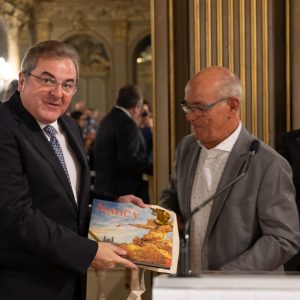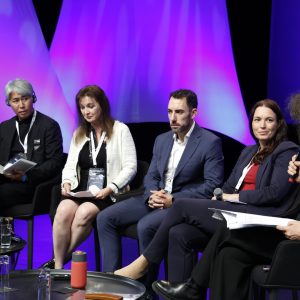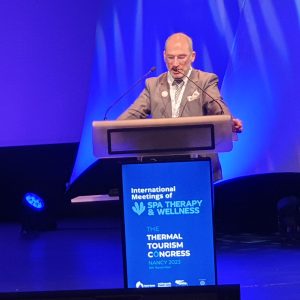The European Historic Thermal Towns Association (EHTTA) held its second International Congress on Thermal Tourism in Nancy (France) last week. With the participation of UNWTO and hosted by the Métropole Grand Nancy and Fédération Thermale et Climatique Française, “The Thermal Congress” was a great success, attracting more than 400 delegates from more than 20 countries around the world to meet, network and discuss different aspects of thermal tourism in Europe and the world.
The International Thermal Congress was arranged to coincide with the French “Meetings of Spa Therapy and Wellness”, which included one day of meetings of French institutions and associations from the Thermalism sector.
Ion Vilcu, Director of the UNWTO Affiliate Members Department, congratulated the organizers of the Thermal Congress and the hosts for their commitment and partnership with UNWTO. He underlined EHTTA’s valuable membership, “which has had an essential contribution on placing the issue of Thermal Tourism in a priority position on the UNWTO agenda. This Congress underscores the importance of our collective mission to unlock the potential of thermal resources for the well-being of residents and visitors alike, while advancing in the evolution of thermal destinations towards sustainability.”
In his welcome speech, EHTTA Vice President Eric Brut reminded thermal destinations and spa towns all over the world to be proud of their special characteristics and said: “We need to let each spa define its own path, write its own story, with the profile of each spa ranging from the most medical to the most developed tourist destination thanks to its sports, wellness, cultural, heritage, gastronomic, outdoor and events activities.” He also stressed the need for attracting new customers (for example younger and more family-oriented clients) by making the destinations and towns more attractive.
The Thermal Congress 2023 was a one-day event, with an extensive and varied programme featuring five panels.
A total of 23 high-level speakers from seven countries with Japan and the USA among them, discussed cross-border cooperation, the potential of a European thermal observatory, thermal tourism around the globe, the assets of natural mineral water and the challenges related to energy management and sustainability strategies.
Representatives from other important European associations such as the Great Spa Towns of Europe and the European Spas Association contributed to the topics discussed. Moderator Julie Merckling ensured that the delegates heard an interesting debate, and kept the discussions on track.
Following the success of the Thermal Congress, both EHTTA and UNWTO are aiming to hold the next Thermal Congress in two years’ time, in 2025.



